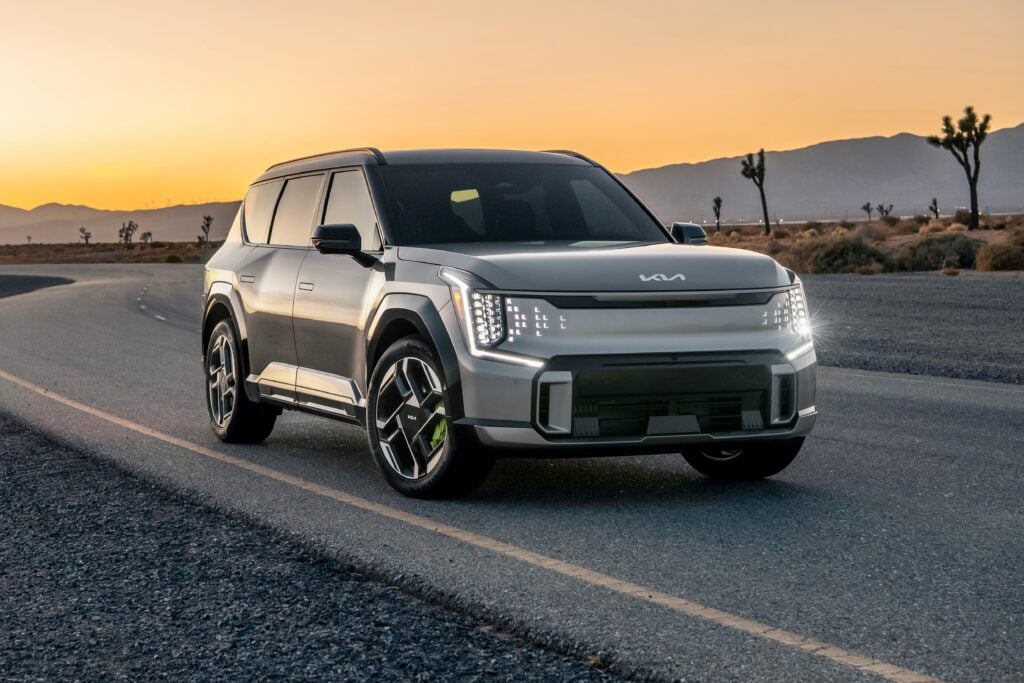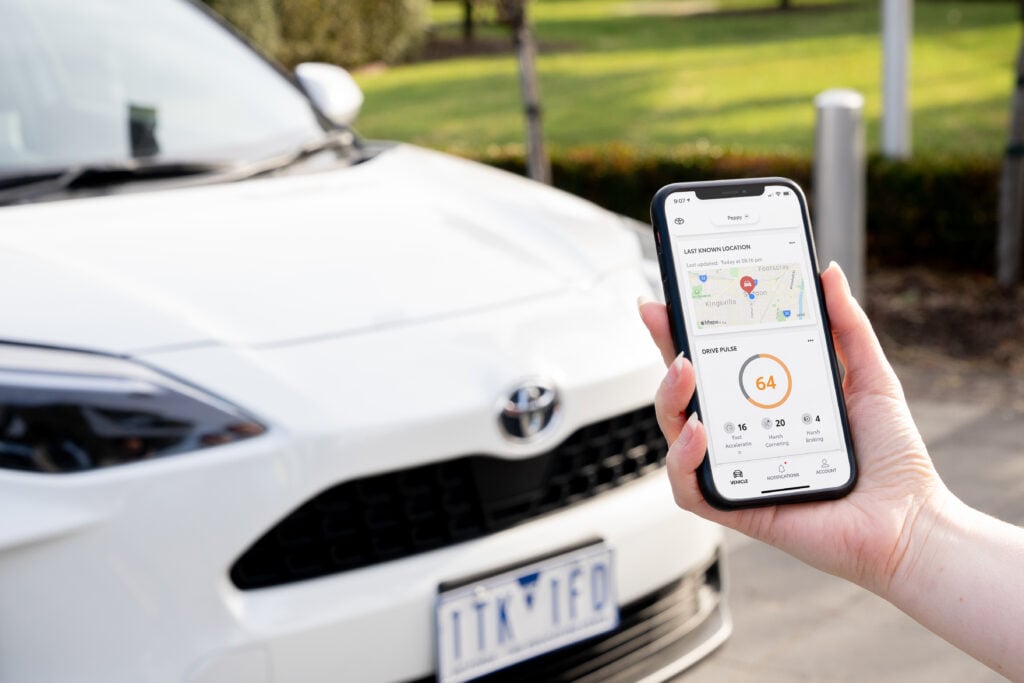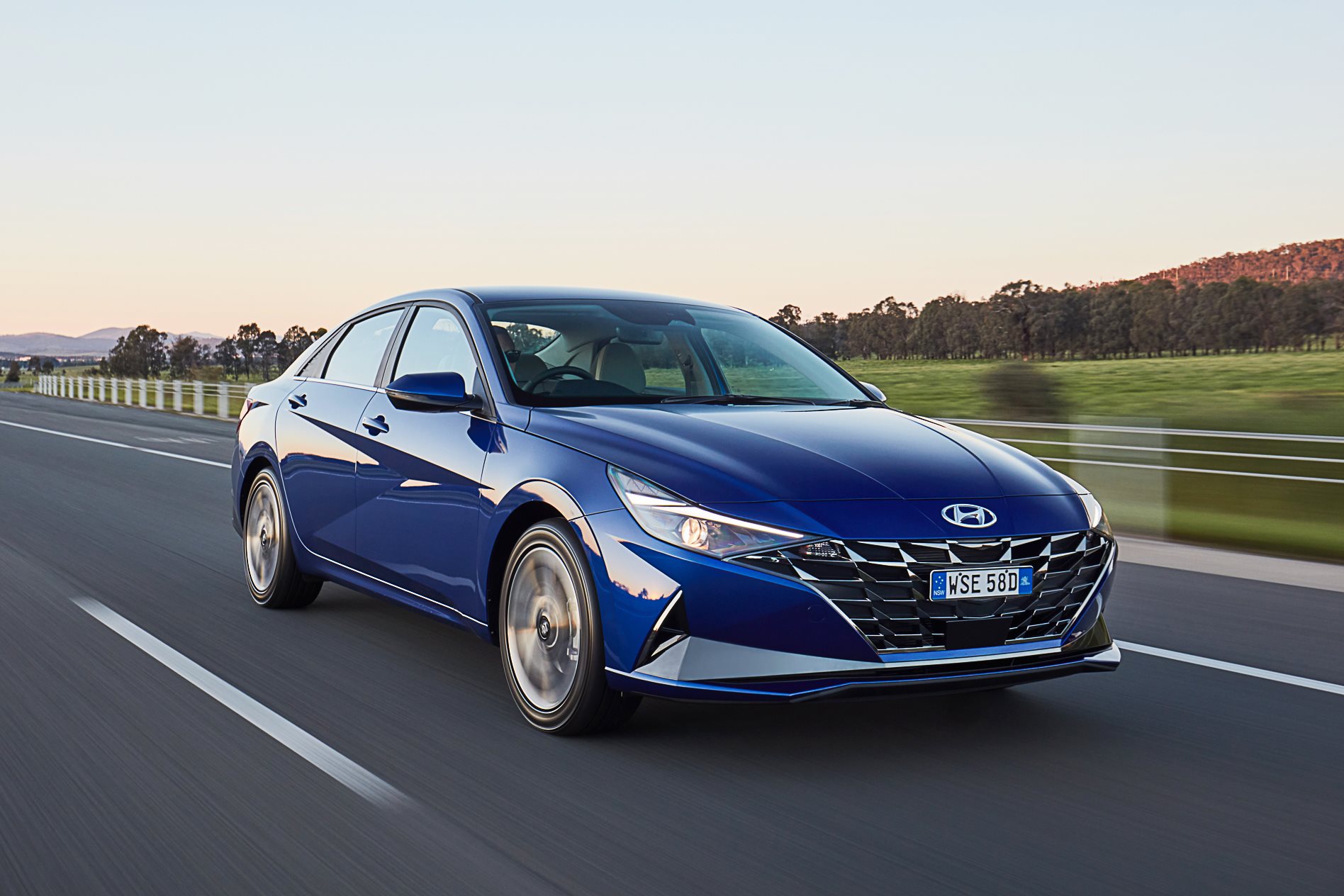
Hyundai is taking direct aim at Mazda and Toyota with its high-tech, high-spec i30 Sedan, starting at less than $25,000 in base form.
With rear parking sensors and camera, wireless phone charging and leather-accented trim standard across the four-variant range, the i30 Sedan replaces the Elantra nameplate in Australia with a high-spec and good-value small four-door sedan.
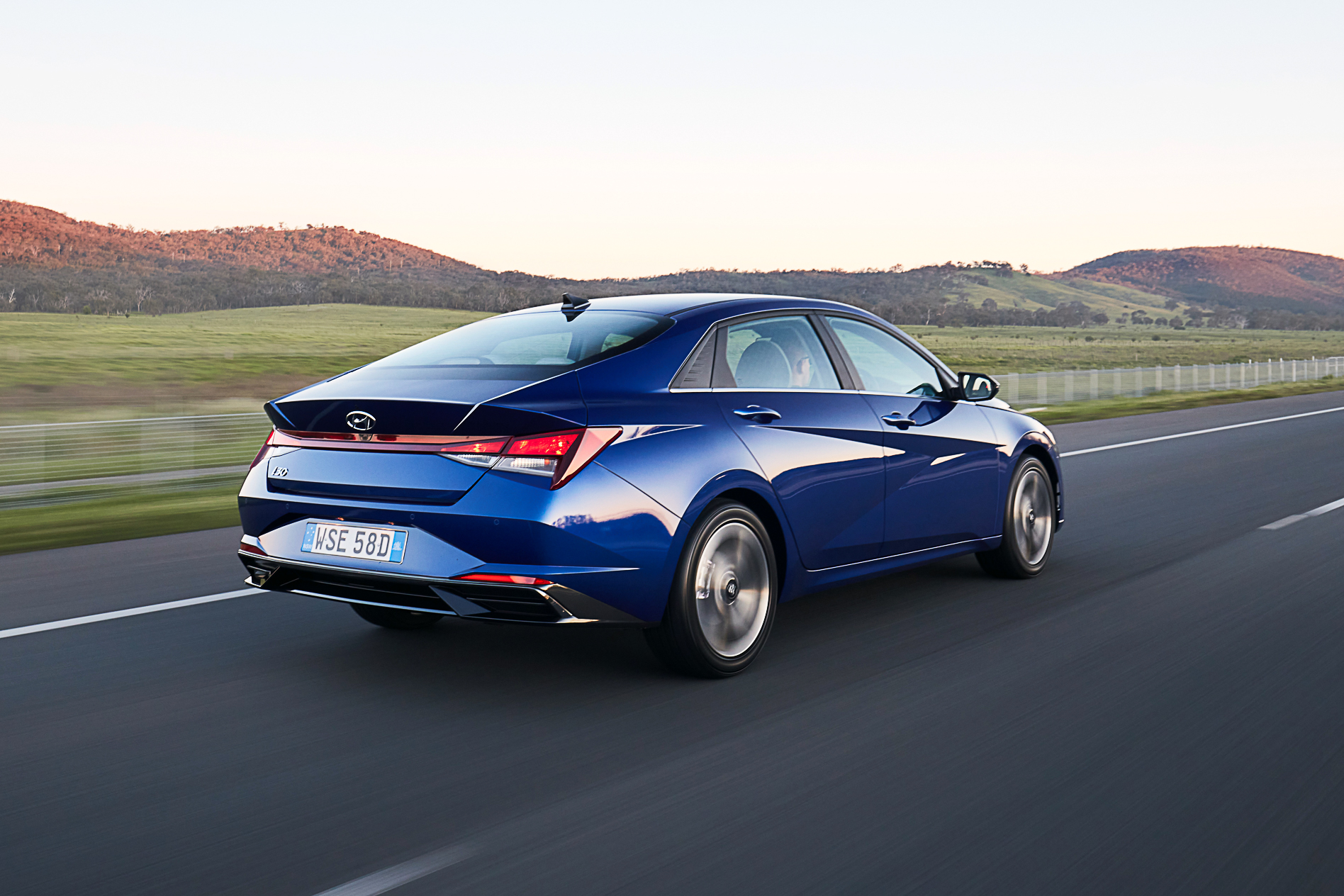
The i30 Sedan will take on the Toyota Corolla sedan and Mazda 3 sedan, as well as sibling rival Kia and its Cerato sedan.
There’s more rear space and cargo room in the i30 Sedan compared to the outgoing Elantra, as well, with 471 litres of boot space and nearly six centimetres more rear legroom. The front seats, too, are mounted 25mm lower in the car.
The i30 Sedan is underpinned by a new K3 platform which makes it lower, lighter and stronger compared to the outgoing Elantra, while its driving dynamics are also said to be improved thanks to a lower centre of gravity.
Extensive suspension re-tuning for Australian roads has been carried out, with a particular emphasis on the N-Line variants.
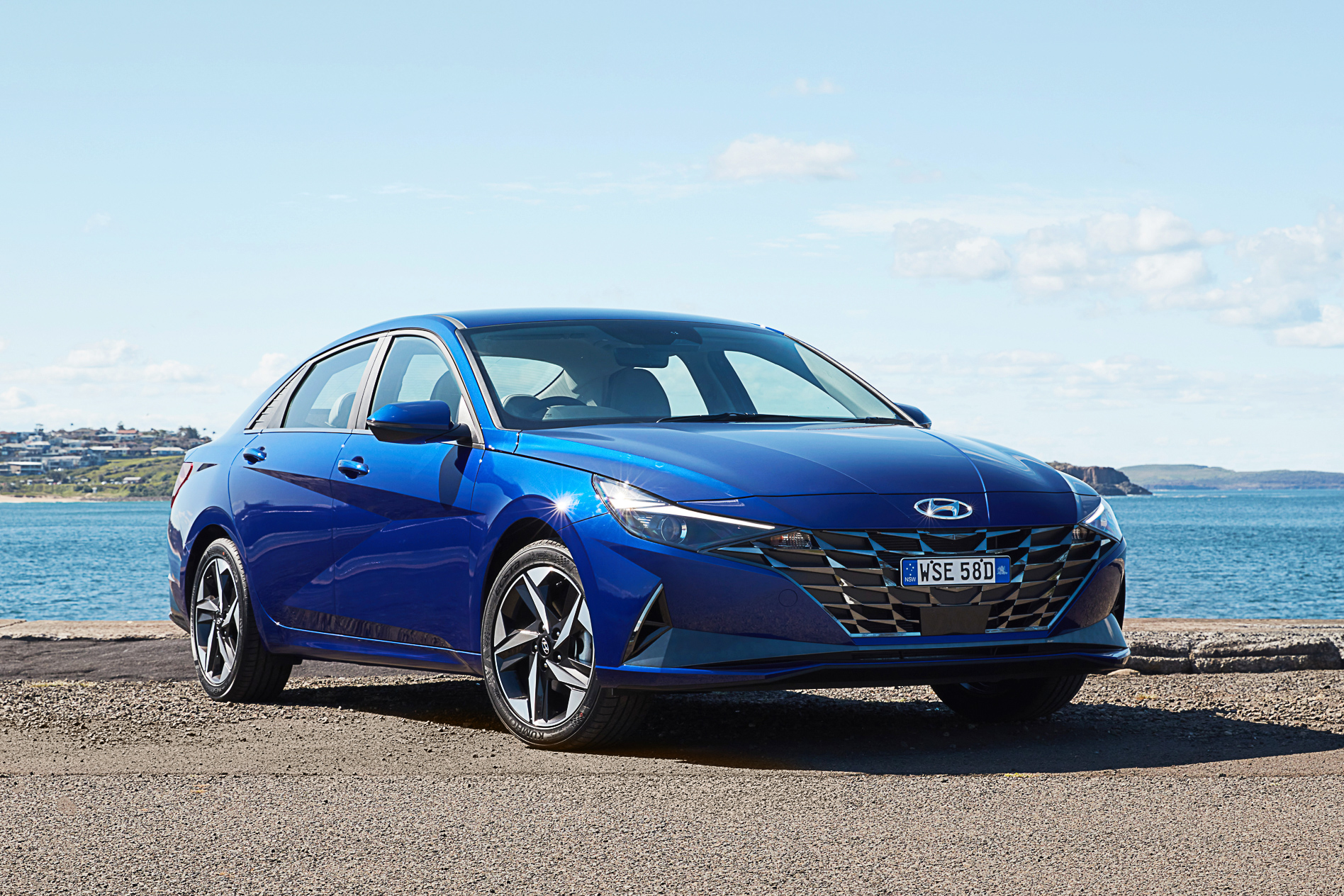
The Hyundai i30 Sedan is priced from $24,790 plus on-road costs for the base-model Active equipped with a 2.0-litre naturally aspirated petrol engine and six-speed manual.
Most people will pay $2000 more for a six-speed automatic-equipped i30 Sedan Active, while the auto-only Elite will cost $30,790.
Boot sizes of Australia’s best-selling sedans
Stepping up into the i30 Sedan N-Line costs $30,290 in manual form and $32,290 with a seven-speed dual-clutch transmission, while the top-spec N-Line Premium is DCT-only and will cost $37,290 plus on-roads. All i30 Sedans are front-wheel-drive.
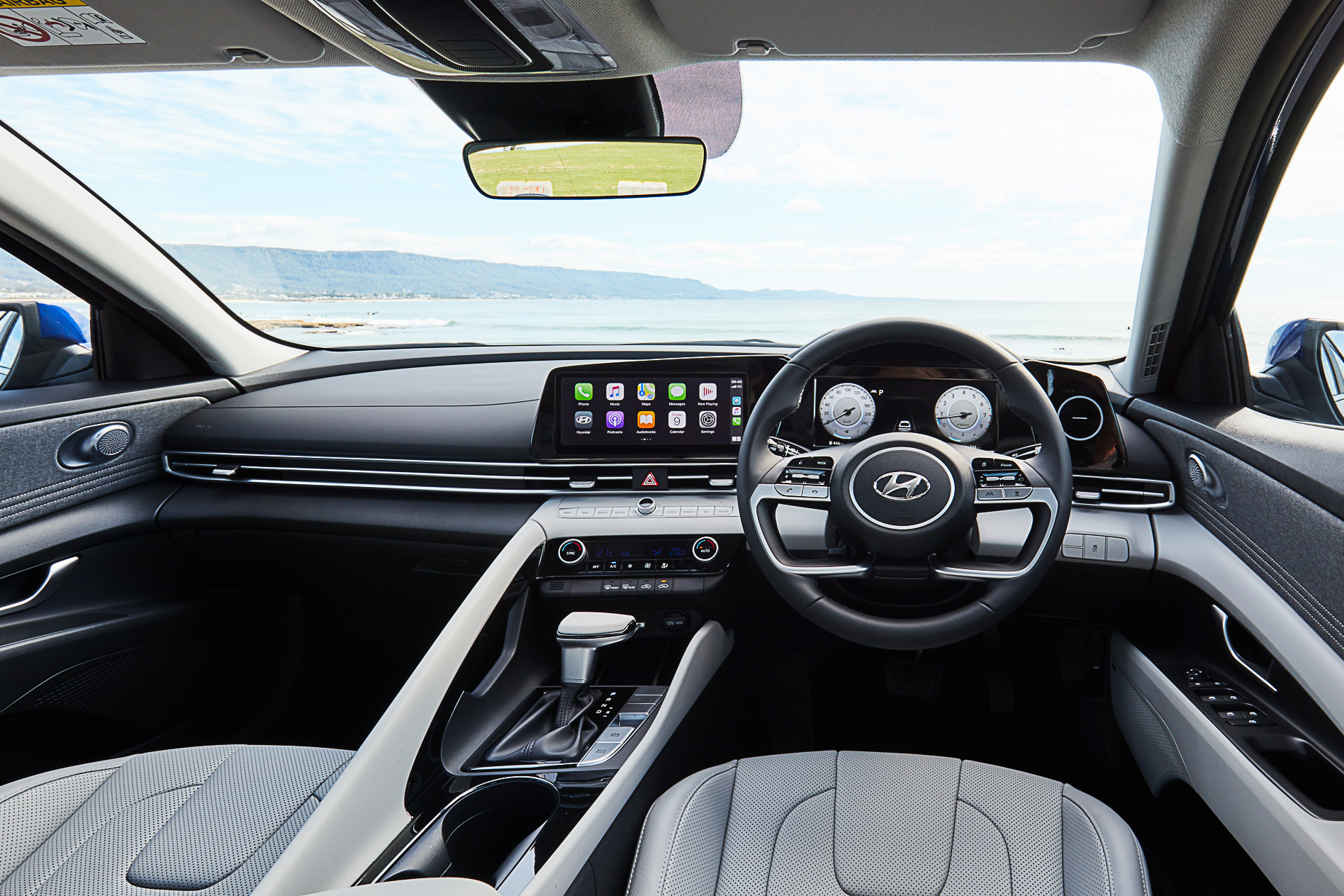
Both the N-Line and N-Line Premium come with Hyundai’s 1.6-litre turbocharged petrol engine, which for the i30 N-Line comes with a host of new tweaks, including predictive continuously variable valve timing for better economy. It makes 150kW and 265Nm.
The Active and Elite use an improved version of Hyundai’s 2.0-litre non-turbo petrol engine, called the SmartStream G2.0, which makes 117kW and 191Nm.
At the base, the Active offers up Hyundai’s SmartSense safety basics including AEB, lane-follow assist, adaptive cruise control, automatic headlights, 17-inch alloys and an 8.0-inch touchscreen.
There are also small but important features like rear-seat occupant warning, which is activated by detecting whether the rear doors were opened at the start of the trip.
Interestingly, the smaller 8.0-inch multimedia screen offers the option of wireless Apple CarPlay.
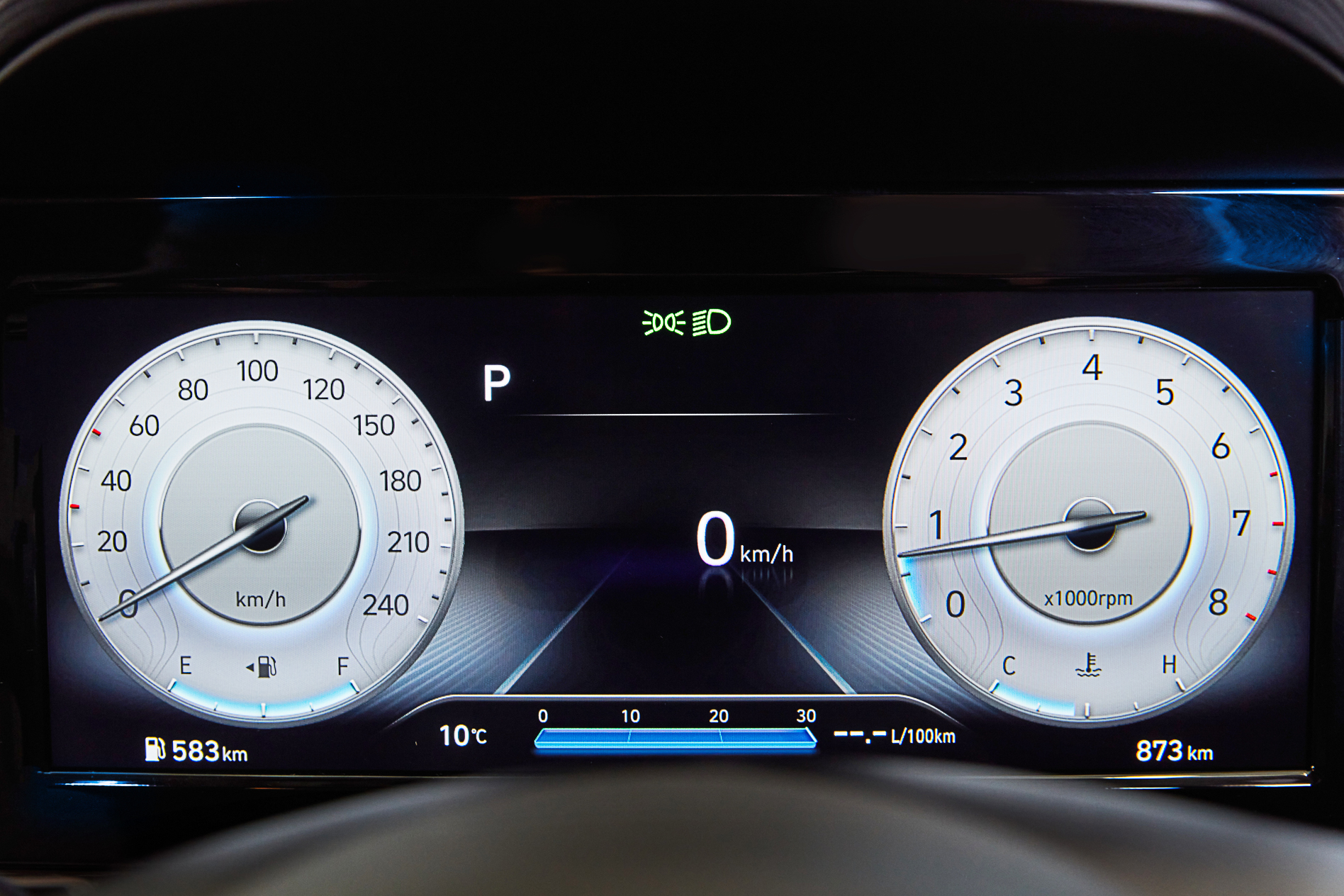
Opting for the Elite gets you additional safety aids including blind-spot collision avoidance, rear cross-traffic and rear parking collision avoidance, a 10.25-inch screen to match the digital dash and automatic wipers, along with a Bose stereo, push-button start and keyless entry.
The bigger multimedia screen also features Hyundai’s newest widescreen sat-nav tech.
Step into the N-Line – which lands towards the end of the year – and you’ll also get multi-link rear suspension to go with the sharper 1.6-litre turbocharged engine.
LED headlights and taillights, hands-free boot opening, adaptive cruise control, remote start capability and dual-zone climate control are standard, while the top-spec N-Line Premium scores heated and vented front seats, a sunroof and tinted glass.
Sports seats with extra bolstering and a bespoke steering wheel are standard in the N-Line.
Seven shades of paint are available for the i30 Sedan, including Lava Orange for the N-Line variants, Polar White, Phantom Black, Fluidic Metal and Amazon Grey are available across the range, along with Intense Blue and Fiery Red.
Leather seat upholstery is standard for the i30 Sedan line-up, with black leather for Active, black/grey leather for Elite, and black sports leather for N Line variants.
The Hyundai i30 Sedan isn’t yet safety rated by ANCAP. Because the car isn’t sold in Europe, there is no Euro NCAP data to apply, which could then be extrapolated out into an ANCAP safety rating for the i30 Sedan.
Hyundai has not submitted the car for ANCAP crash testing, but the Australian safety body may conduct an audit of its own.
Stay tuned for our first drive review this Friday.
Hyundai i30 Sedan Australian pricing
- i30 Sedan Active (manual) – $24,790
- i30 Sedan Elite – $30,790
- i30 Sedan N-Line (manual) – $30,290
- i30 Sedan N-Line Premium – $37,290


